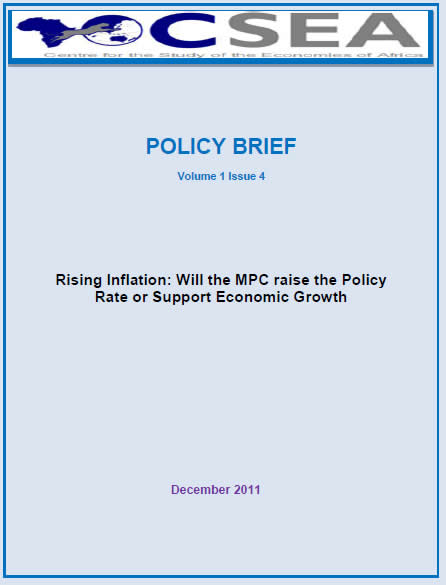Publication Date:December, 2011
Volume Number:1 Issue 4
Document Size:3 pages
The Monetary Policy Committee (MPC) of the Central Bank of Nigeria (CBN) holdsits first meeting for 2012 on January 30th, taking into consideration global anddomestic developments since its last meeting in November 2011. While events inthe global economy will remain in the front burner due to the effects of projectedslowdown in economic growth of OECD countries and other key oil consumingnations on the Nigerian economy, the key domestic issue that will influence theinterest rate decision is the partial reduction in petrol subsidy by the federalgovernment. Therefore, without taking eyes off the effects of global events on thedomestic economy, the MPC will again be faced with the dilemma of either raisingthe Monetary Policy Rate (MPR) in order to prevent the economy from overheatingdue to the inflationary effects of petrol price increase, or better still maintain aneutral policy stance. In December 2011, headline and core inflation ratesmoderated from 10.5% and 11.5% to 10.3% and 10.8% respectively, while foodinflation rose from 9.6% to 11%. However, the MPC will be concerned with thetrend of core inflation since for the whole of 2011, core inflation which discountsseasonality, averaged 11.7% compared to headline and food inflation average ratesof 10.8% and 10.3%.

